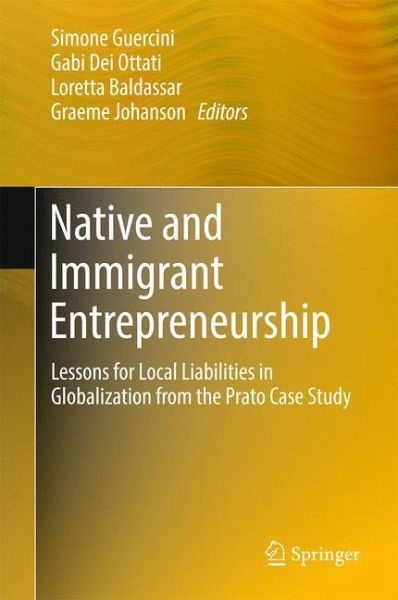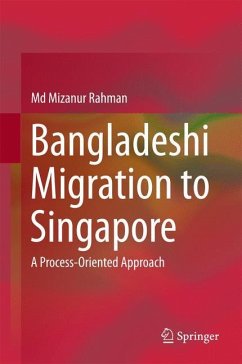
Native and Immigrant Entrepreneurship
Lessons for Local Liabilities in Globalization from the Prato Case Study
Herausgegeben: Guercini, Simone; Dei Ottati, Gabi; Baldassar, Loretta; Johanson, Graeme

PAYBACK Punkte
49 °P sammeln!
This book adopts a multidisciplinary approach to the issue of "local liabilities", drawing on close analysis of the case of Chinese migrants and the Italian industrial district of Prato in order to elucidate the problems, or liabilities, that derive from the separation between natives and immigrants in local systems of people and firms. Insights are offered from a variety of disciplines, including business and industrial economics, anthropology, and sociology, thereby providing a framework through which to view the problems and also identifying potential pathways for their evolution and resolu...
This book adopts a multidisciplinary approach to the issue of "local liabilities", drawing on close analysis of the case of Chinese migrants and the Italian industrial district of Prato in order to elucidate the problems, or liabilities, that derive from the separation between natives and immigrants in local systems of people and firms. Insights are offered from a variety of disciplines, including business and industrial economics, anthropology, and sociology, thereby providing a framework through which to view the problems and also identifying potential pathways for their evolution and resolution. The focus on local liabilities affords an original perspective on the nature of globalization and highlights salient aspects of native and immigrant entrepreneurship. Globalization not only creates "bridges" between distant places but also changes the face of businesses and socioeconomic systems at the local level, where local liabilities may emerge when two or more separate communities (ofpersons and firms) exist. The greater the separation between the communities, the greater the local liabilities. In offering diverse perspectives on this relatively neglected aspect of globalization, the book will be of interest to a wide readership.












